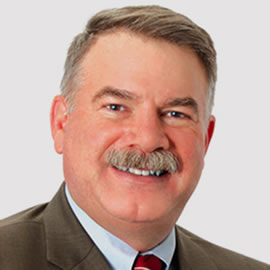“13. The delivery of good medical care is to do as much nothing as possible.” “Laws of the House of God,” ~Samuel Shem
I have been a part of U.S. Medicine and this column for several years now. I am occasionally asked where my ideas come from for the editorials I produce. Many ideas, of course, are pulled right out of the headlines or the nightly news. Others are derived from my experiences, both medical and otherwise, that have a link (no matter how tenuous) to our collective experience as federal medicine providers. Most of the time, the preponderance of the editorial has already been written in my head long before I sit down and regurgitate the idea on paper. The most significant time expenditure in developing an editorial idea, at least for me, is just thinking about a particular topic, discussing the issue with friends (mainly my wife to her chagrin) and colleagues, and skulking around the internet for other views on the subject I am chewing on.
Those U.S. Medicine readers who have subjected themselves to my ruminations for any length of time know I like to introduce my topics with a quote from history. It was during one of these internet surfing expeditions for a quote that my theme for this month became subsumed by the electronic information upon which I stumbled.
The editorial idea that was rattling around in my skull had to do with my concern that medicine has become too focused on “doing things” to patients in support of a warped (in my opinion) economic profit model of medicine. Physicians are incentivized and encouraged to favor profitable prescriptions and procedures with little regard to the outcomes that result in their patients from these therapeutic activities that we inflict upon them. As I perused the internet with this dark and rather cumbersome idea in mind, I stumbled upon an old friend from my formative years as a medical student, intern and resident. That friend was a book I had read multiple times to help me cope with the stresses that are inherent to becoming a physician.
In my day, reading “The House of God” by Samuel Shem, MD, was almost a rite of passage during training, and even those who did not read the book became familiar with its content, since the material is part of the lexicon of medical practice in the United States. The book is a satirical look into the trials and tribulations of becoming a physician during the infamous internship year after medical school that is part of every physician’s experience.
Certainly, internships are as varied as the physicians they forge, but I have never heard a physician describe their experience as comfortable. I also have never heard of anyone completing an internship without being fundamentally changed by the year, and I have never met the doctor who wishes they could repeat their internship. “The House of God,” although a work of fiction, does expose the good, bad and ugly of medicine in America. The book was published in 1978 and continues to be controversial, drawing considerable criticism from all quarters of the medical establishment in this country. Despite this, the popularity and timeliness of the characters in this story continue to resonate with medical professionals today. I think many critical consumers of “The House of God,” allow themselves to get lost in the hyperbole and therefore miss the beauty of unvarnished truth about medicine and the human condition that Shem so masterfully and humorously provides.
One of my favorite characters in the book was The Fat Man, a senior resident on a crusade to protect patients from “the system” by breaking the rules (rule-breakers speak to my inner anarchist). The Fat Man develops a set of “Laws of the House of God” that I would venture to say are likely evoked in conversation by some physician in training every day in America. One of my favorite “laws” as a trainee then and a crusty doctor now was Law 13, “The delivery of good medical care is to do as much nothing as possible.” This was the quote I came across in my search for symbolic language on the excesses of modern medicine. My diversion was complete when I learned that Shem and the colleagues he had based his characters on were celebrating the 40th anniversary of the book’s publication with a series of panel discussions at NYU Langone Health, which was recently posted on the internet.
I have provided the link, which I encourage you to visit; it consumed me for a delightful hour. One of the panelists, commenting on the critics who complained that the book was nothing more than rage, anger and cynicism at the expense of the honor of medicine, explained that the gallows humor so prevalent in the book and actual medical practice is a metaphor for our collective impotence in the face of human suffering. Like the panelists, I feel that critics who cannot see past the cynicism are genuinely missing the point of this allegory. “The House of God,” reminds physicians young and old that we, too, are human, subject to all the base and nasty realities that define being a human. Perhaps more importantly, though, as we wade through the trials of our clinical day, we must remember to fight to maintain our humanity, if we wish to be competent physicians for our patients. If the cost for this humanity is a little rage and sarcasm against the inhumanity of our medical system, well, that is a price I will pay to cope.
Congratulations to Dr. Shem and colleagues for the needed light you shed, then and now, on our profession. It has been many years since I visited the pages of “The House of God.” I think it is time for another visit.


